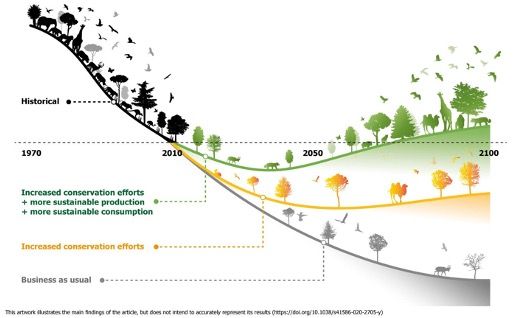Decoding the Climate Algorithm: Leadership Insights for a Sustainable Future

In an era where global business intricacies intersect with profound environmental shifts, understanding climate change is pivotal. It's not just about environmental stewardship; it's about future-proofing businesses, ensuring resilience, and capturing growth opportunities in emerging markets. Let's delve deeper into each facet of the climate equation.

1. Temporal Climate Dynamics: Past and Present
Historically, Earth's climate has witnessed periods of elevated CO2 levels and temperature fluctuations. However, the modern acceleration in these changes is a cause for concern. Leaders must not only differentiate between historical data and current anomalies but also comprehend the implications for industries ranging from agriculture to real estate.
2. The CO2 Quotient: More Than Just Emissions
Beyond the greenhouse effect, CO2 impacts air quality, public health, and even the intricate balance of marine ecosystems. For businesses, this translates to challenges in supply chains, potential health-related liabilities, and shifts in consumer behavior towards eco-friendly products and services.
3. Green Capitals: Investing in Nature’s Assets
Forests, wetlands, and peat bogs offer more than just carbon sequestration. They're biodiversity hotspots, sources of medicinal research, and hold potential for eco-tourism. Their degradation poses risks to various sectors and diminishes potential future revenue streams.
4. Ocean Dynamics: A World of Blue Opportunities
Oceans provide fisheries, transportation routes, and even renewable energy prospects (like tidal energy). Understanding and mitigating threats to our oceans, including acidification, can help safeguard these resources, leading to sustainable profits and stakeholder trust.
5. The Black Carbon Chronicle: A Global Chain Reaction
Black carbon, resulting from incomplete combustion, accelerates polar melting, impacting global sea levels. Its reduction can prevent potential infrastructural damages, insurance liabilities, and loss in coastal real estate values, presenting an urgent agenda for energy and urban planning sectors.
6. Renewable Revolution: Beyond Energy to Value
Switching to renewables isn’t just about energy independence. It means cleaner cities, improved public health, technological innovations, and the emergence of new markets and job sectors. Leaders must view this as a comprehensive strategy, not an isolated initiative.
7. The Oceanic Life Ledger: An Economic Ecosystem
Beyond their carbon sequestration role, marine organisms are integral to fisheries, pharmaceutical research, and nutrient cycling. Protecting them ensures food security, sparks biotechnological innovations, and sustains coastal economies.
8. Pollutant Paradigm: From Liability to Innovation
Addressing pollutants means cleaner water, reduced healthcare costs, and restored ecosystems. For businesses, it represents opportunities in clean technologies, waste management solutions, and even new materials that can replace harmful pollutants.
9. Ecosystems as Equilibrium: The Keystone of Stability
Nature’s regulators, from mangroves that shield coasts from storms to wetlands that purify water, are irreplaceable. Their conservation can mitigate natural disaster costs, ensure water security, and offer unique eco-tourism opportunities.
10. Strategy Synthesis: Navigating the Climate Nexus
Leadership in this climate-conscious era demands a holistic approach. It's about integrating ecological insights into business models, fostering innovation that aligns with ecological principles, and foreseeing market shifts driven by environmental trends.
In sum, as business and climate intricacies entwine further, an integrative approach that views ecological challenges as intertwined with business opportunities will set pioneering leaders apart. It's a journey of navigating risks, yes, but also of charting new, sustainable growth trajectories.